
Berlin Stories
This week: Gaza Biennale, embodiment workshops, listening sessions
Loading
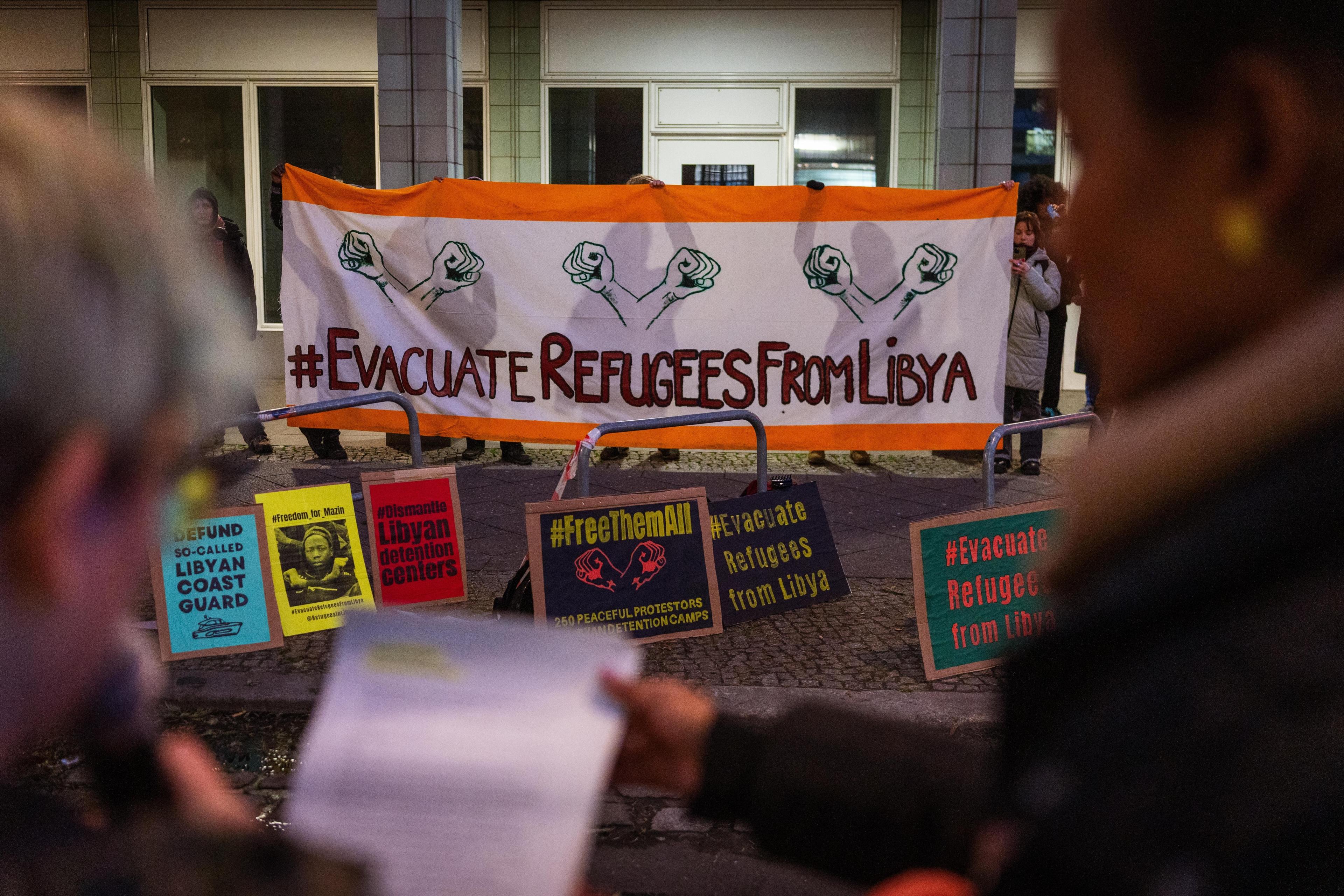
aequa meets Berlin support network 'Solidarity with Refugees in Libya' to discuss the origins of their movement
By Sarj Lynch
“Europe is complicit in Libya, in the suffering, in the torture, in murder… This is all part of the EU border regime.” - Azeb Ambessa, Solidarity with Refugees in Libya.
Sarj, host of aequa radio, was recently joined on air by two members of Solidarity with Refugees in Libya, a grassroots movement in Berlin that has come together to support the work of the Refugees in Libya movement.
Thousands of people who have fled conflict, persecution, poverty and climate breakdown are detained while travelling through Libya on their way to Europe. In Libya’s detention centres, migrants and refugees experience horrific human rights violations including torture and forced labour. The response of the UNHCR, the United Nations Refugee Agency, has been largely ineffectual, while the European Union has been at the very least complicit and at worst an active participant in the abuse.
In this edited transcript excerpt, Sarj, Charlie and Azeb discuss the origins of the Refugees in Libya movement, the growth of grassroots support systems and the effects of EU border policy. Additional quotes from representatives of Refugees in Libya have been added.
CW: torture, modern slavery, human trafficking
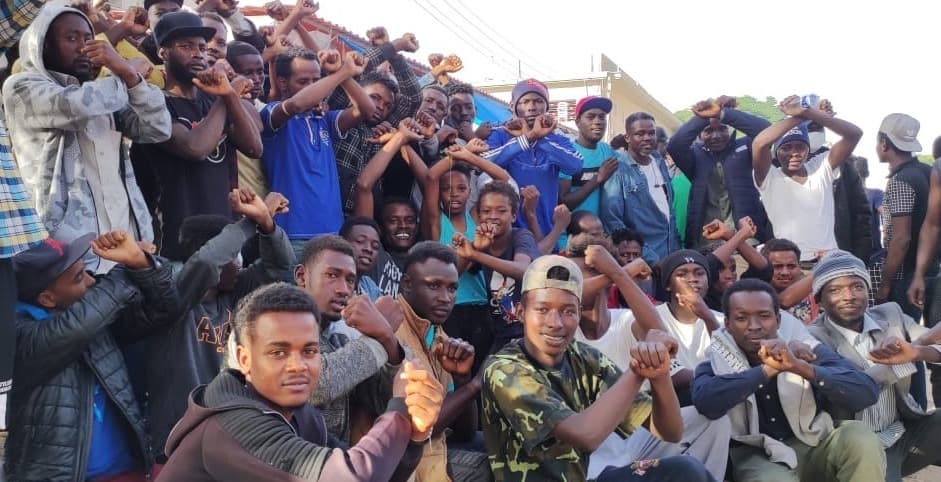
Sarj: Today on aequa radio we are going to once again be exploring the idea of refuge itself, and more specifically, the idea that asylum is a human right. I'm very grateful to have Azeb and Charlie here from Solidarity with Refugees in Libya.
We talk a lot on this show about co-creating a new world together. It’s not only about building new structures, new alternatives to the systems of capitalism, patriarchy and colonialism, that have failed so many of us. It's also about showing solidarity with those who are, in many cases, literally enslaved by these systems.
Charlie and Azeb, thank you so much for being here today and being willing to share with us. Let’s start at the beginning. Who are the Refugees in Libya that you stand in solidarity with? What are they experiencing? What are they fighting and organizing for?
Azeb: So today we’re talking about the self-organized protest movement Refugees in Libya. You can find them on Twitter, they have a website where you can read their manifesto, which explains exactly who they are and what they're demanding. This movement started in October 2021 as the result of some raids in an area in Tripoli called Gargaresh, where many migrants and refugees live. During these raids Libyan authorities incarcerated more than 5000 people who were living there, claiming that the refugees were criminals selling drugs, engaging in prostitution etc.
Soon after they were detained, a riot broke out at the al-Mabani detention centre and many managed to escape. They gathered in front of the UNHCR (the UN Refugee Agency) offices in Tripoli, to seek UN protection. They protested for more than 100 days, and this protest became the movement Refugees in Libya.
In January 2022, the UNHCR decided to close the offices and tried to disperse the people, telling them that they could only help the most vulnerable. They didn't really provide any protection or support to the protesters. Two days later, Libyan security forces dismantled the protest camp, burned everything down and, again, took more than 600 people into custody, mainly to the Ain Zara detention centre.
“The UNHCR, who has taken a huge grant to represent the people, only plays politics with our lives.” - Yambio David, Refugees in Libya
Sarj: From what I understand this is not only this resistance movement, but they're also running a mutual aid effort. Can you tell me a bit more about these two aspects of their work?
Azeb: So from that point [January 2022], Refugees in Libya were no longer protesting publicly. Instead, they have adopted a different form of resistance by supporting each other and supporting survivors of torture. They work to provide life-saving aid like housing, food and medical assistance to people who've just been released from torture camps.
Sarj: And all of this is coordinated through WhatsApp, right? It’s incredible to me, that if someone calls out to the UNHCR in distress, the wait time is up to two weeks. On the other hand, here are people who themselves are up against incredible circumstances and are organizing ongoing multilingual support. The network is doing the job better than this institution.
Do you mind telling me a bit more about their demands? What are they asking for specifically?
Charlie: In the manifesto of Autumn 2021 there are seven demands. These include, for example, the evacuation of refugees in Libya to safe countries; fair treatment by the UNHCR for all people on the move regardless of official status; abolition of the EU funding of the so-called Libyan coast guard; justice for those who have been murdered, tortured, and arbitrarily detained; and for Libya to sign the 1951 Geneva Refugee Convention.
Sarj: So if I understand correctly, part of the reason that what’s going on in Libya right now is even possible is that Libya has abstained from signing this convention, right?
Azeb: Yes, that makes these abuses possible. The fact that Libya hasn’t signed the Geneva Convention is something that the UNHCR also struggles with because this convention gives them their mandate.
But also, these abuses are very much facilitated by the European Union, which is using the Libyan authorities to control migration and to deter migrants from entering Europe. I think that plays a very important role. A main factor is all the money that has been pumped into this region to deter migrants from reaching safe countries in Europe.
Sarj: What is the EU funding exactly?
Azeb: Well, a lot of money goes from the EU toward the so-called Libyan coast guard, which was also established as a consequence of EU pressure. The coastguard is basically made up of militias and criminals that are now all wearing a uniform. They are supposed to save people if they are in distress at sea, but what they do instead is intercept migrant boats, take them back to Libya and put them straight into detention and torture camps. A big role in all this is played by Frontex, the border agency fully financed and installed by the EU. Frontex have surveillance planes, and they pass on coordinates to the Libyan coast guard, who can then intercept migrant boats.
And I just want to add something about the different causes for refugees to leave their countries. Of course, climate change, and environmental factors play a role, but also poverty and wars. And a lot of times these causes can be traced back to European actors and colonialism.
Sarj: So, when the Coast Guard intercepts people they then take them to detention centres. Could you explain a bit more about what that means, please?
Charlie: Detention centres are not like regular prisons. They are organized by the militia. They can be large, like a big hangar or warehouse, where people are lucky if they have space enough to sit, or enough space to sleep. There are often no bathrooms, there's nothing to wash with, no toilets or anything. If you're lucky, you get a meal once a day. Many people are tortured, and their families are blackmailed. There's lots of violence, rape, and forced labour. In our group, we see videos showing human rights violations on a level that's really, really horrible. It’s hard to imagine. It's really important to see this [detention centre] not just as a prison, but really as a torture camp.
“Libya became a grave of migrants. You try to cross the sea, you are pushed back and put into detention, where you cannot see sunlight.” - Lam Magok, Refugees in Libya
Sarj: Can you say a bit about how this group, Solidarity with Refugees in Libya, was born? Is it only Berlin-based or a part of a wider network?
Charlie: Right after the Refugees in Libya movement was created in October 2021, two groups were formed. One more on a European level that was formed out of a press conference from Mediterranea, Alarm Phone and some other big groups. Parallel to that, a smaller solidarity movement in Berlin grew out of individuals from the group United4Eritrea, as well as through local groups like No Border Assembly. And in the spring of last year, we finally found our way together and are now working together as one big group and alliance.
Sarj: Working together across these coalitions is of course easier said than done. What does it look like for members of the groups in this alliance? What kind of actions are you collaborating on?
Charlie: So every group has one or two representatives in our alliance. We meet on a weekly basis. But we are also organizing through different chat groups and we have working groups for specific topics and issues either focused on fundraising, or on something like the UNfair campaign for example.
Sarj: Do you want to say anything more about the UNfair campaign?
Charlie: The UNfair campaign started at the end of last year, and it specifically targets the UNHCR. It's basically a continuation of the protests and demands of Refugees in Libya, brought from Tripoli to Europe. We had two action days in Geneva, where the UNHCR head office is, on 9 and 10 December, International Human Rights Day.
“People have been wondering why we named it the ‘UNFAIR campaign’ or the ‘UN Refusal Agency’. UNHCR in Libya has been silent, has been watching the situation that we have been subjected to. We have the right to name them unfair.” - Yambio David, Refugees in Libya
Charlie: We have a lot of criticism for the UNHCR, but at the same time, we see them as a potential partner, because their mandate is to protect refugees. We are trying to continue the dialogue that started in Tripoli and continued in Geneva. I hope that we can achieve some change with that.
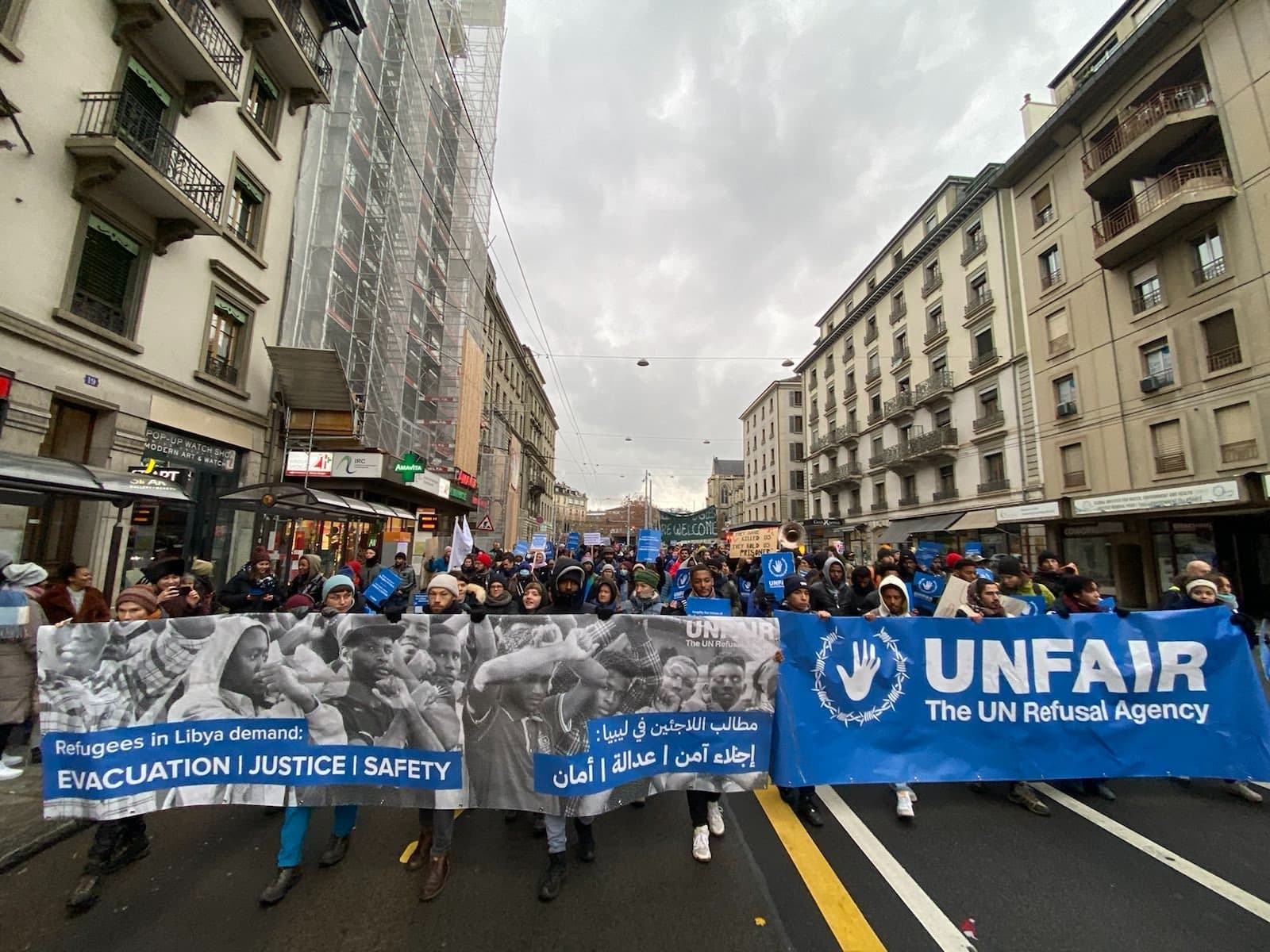
From what I understand you also do a lot of mutual aid on the ground here in Berlin, for people who are part of a network and who are in the Lager [refugee housing] system in Germany. Can you say a little bit about what listeners out there can do to show solidarity and how to support these actions that you're planning?
Charlie: So if you don't have time to offer, you can always donate, you can find a donation link on our socials, as well as the socials of Refugees in Libya. You can share their content, you can amplify their voices.
If you want to become active, you also can become a member of the alliance if you're interested in that. Just contact us via our socials or our email which is: solidaritywithrefugeesinlibya@riseup.net
Azeb: Yes, and I want to add that if you want to learn about what's going on, on the ground, every fourth Monday of the month, we organize a network meeting, which is meant for people who are interested to learn more about the and to potentially join any of the working groups and contribute to this cause.
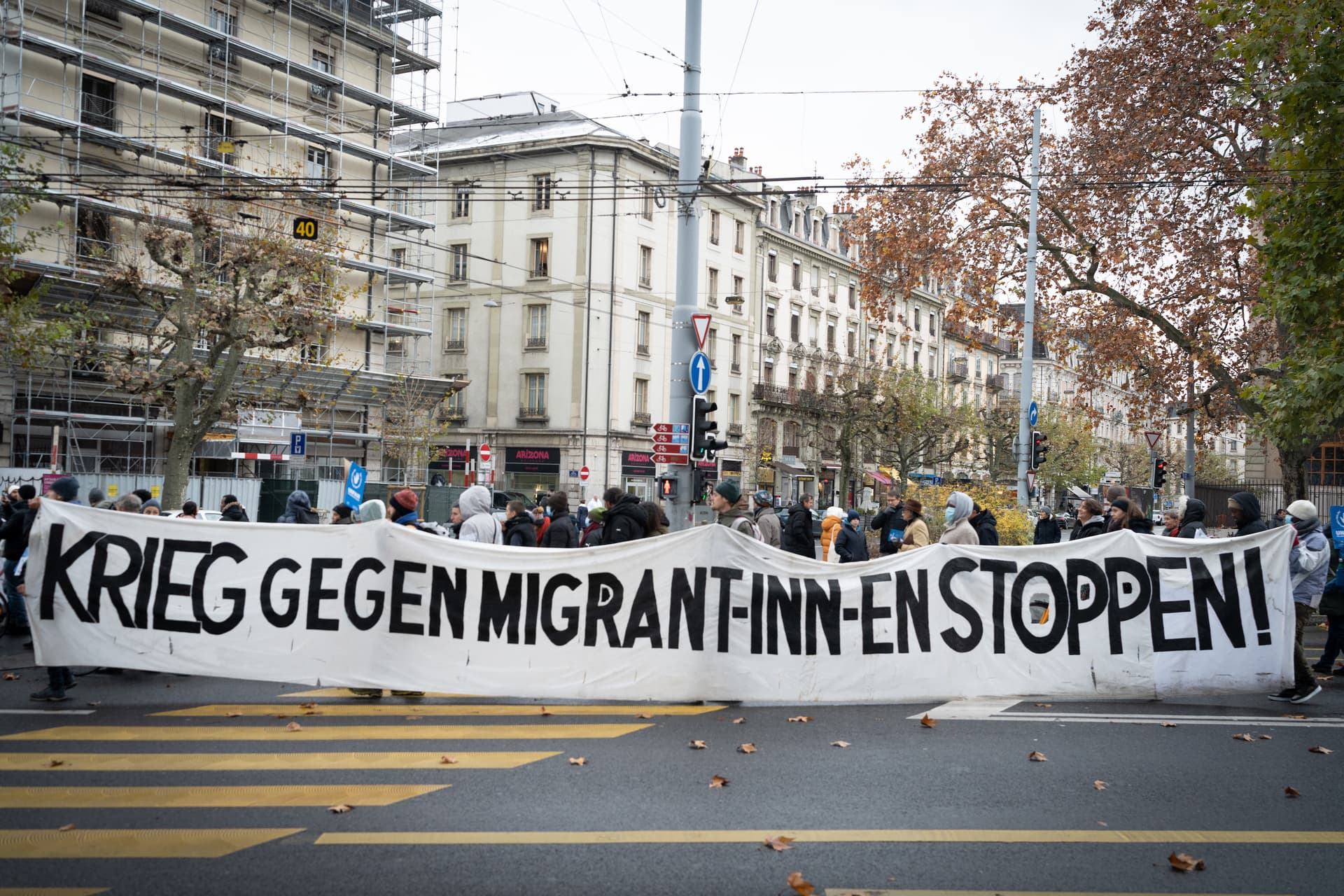
All right, well, thank you both so much for sharing, for being here today, and for the work that you continue to do for this movement. Thank you to everyone else from that alliance for what you're doing. Please donate if you have the means!
Follow, share and donate to Solidarity with Refugees in Libya (Twitter, Facebook, Instagram)
Follow, share and donate to Refugees in Libya (Twitter, Facebook, Instagram)
Photos courtesy of Solidarity with Refugees in Libya.

This week: Gaza Biennale, embodiment workshops, listening sessions

We are hosting another competition! Enter until midnight on Tuesday.
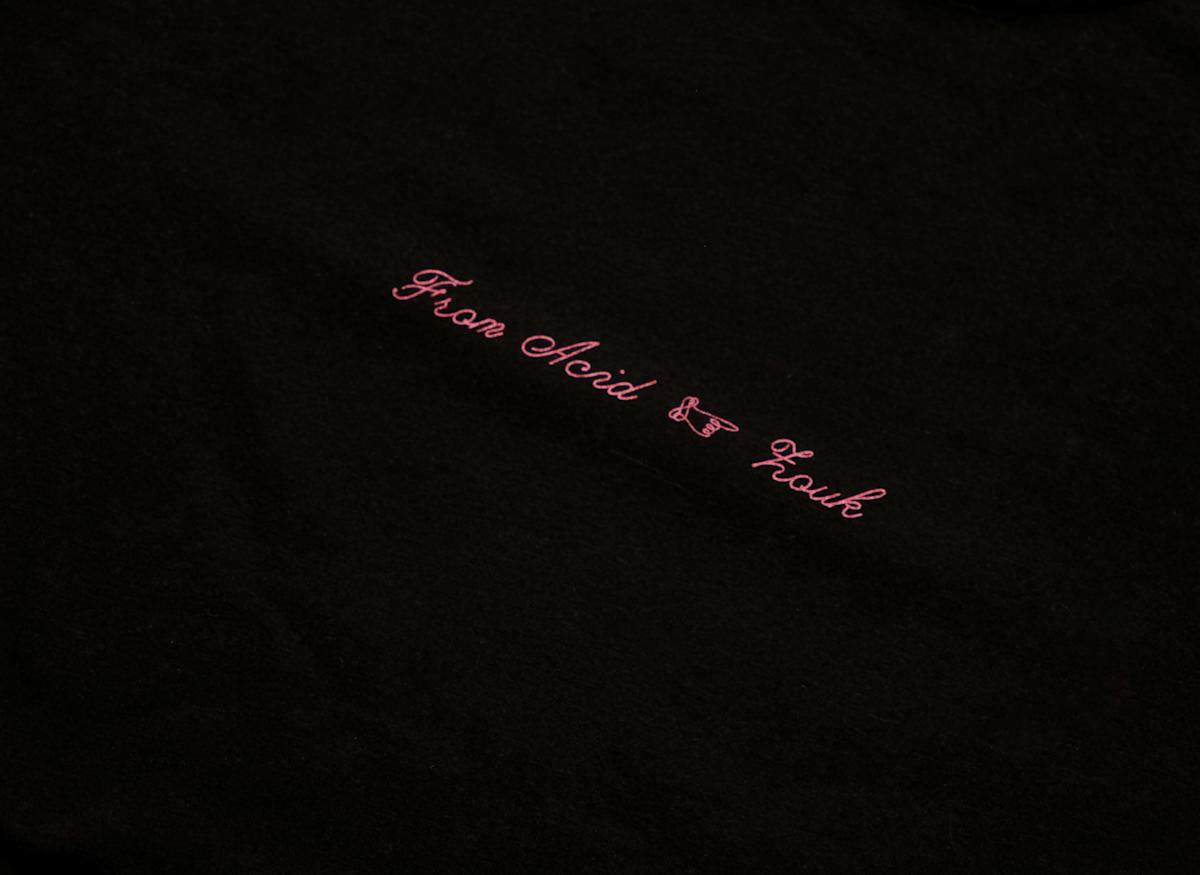
Out now, featuring every genre we've ever had on the radio.